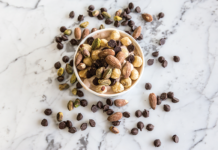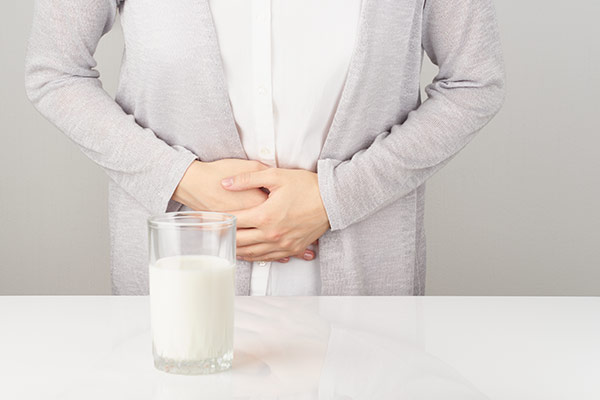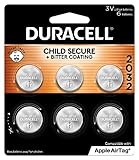A bloated stomach is a feeling of pressure or tightness in the belly; hormonal fluctuations or digestive issues can trigger it. Usually, this symptom goes away after a while. Unfortunately, for some people, it can be persistent.
Causes of Bloating
Most of the time, a bloated stomach is caused by the excess gas in the intestines. However, it can be triggered by various factors, such as food intolerance or a medical condition that can restrict the flow of nutrients into the body.
Gas
As your body digests the food you eat, it creates gas as a byproduct. However, making too much gas can mean something goes wrong in the digestion process. There are several reasons this could happen, such as eating too fast, food intolerance, or a gastrointestinal disorder. Some other common causes of excess gas are:
- Carbohydrate Malabsorption is a condition that occurs when the body can’t digest certain kinds of carbohydrates. Some of these include refined sugars and wheat and beans. Various factors can cause it.
- Small Intestinal Bacterial Overgrowth (SIBO) is a condition where the growth of certain gut bacteria overwhelms the other bacteria in the small intestine. This imbalance can cause the other bacteria to become overwhelmed and unable to digest carbohydrates.
- Functional Digestive Disorders such as irritable bowel syndrome and functional dyspepsia cause unexplained digestion issues after eating.
- Visceral Hypersensitivity is when the body feels bloated and gassy even though its volume is normal. This condition usually correlates with other disorders related to the gut-to-brain neural pathways.

Digestive Contents
Your digestive system can contain various liquids, solid food, and gas. A build-up of these components can restrict the amount of gas processed through your body.
- Constipation can be linked to various factors, such as your diet and lifestyle. Having backed-up stool can cause the food to stay in the intestines for a long time, leading to abdominal bloat.
- Bowel Obstruction: this could be a sign of a serious condition such as a hernia or tumors blocking your intestines, though it could also be caused by your bowels getting backed up. Also, chronic diseases such as diverticulosis can damage the small intestine and cause it to become narrow.
- Motility Disorders: these disorders can cause slow movement in the intestines. They can be caused by the nerves and muscles that sense the stomach’s contents. Some examples of these include pseudo-obstruction and gastroparesis, or partial paralysis of the stomach muscles.
- Recent Weight Gain: sometimes weight gain that happened in the last year or so can affect the amount of gas in the intestines and make you feel sluggish and irritable during digestion. It can also trigger water retention that can make you feel bloated.
Hormones
It’s not uncommon for women to experience abdominal bloating during their menstrual cycles. Also, it can be triggered by various factors, such as hormonal fluctuations and the effects of certain medications.
Aside from causing water retention, progesterone and estrogen can also affect the movement of fluids in the body. They can also cause an increase in abdominal gas. This is caused by the slow and steady decline in your bowel movement.
Other Causes
Bloating that comes and goes can be caused by various conditions such as digestive disorders, hormonal disorders, or both. However, if it doesn’t go away within a few days, it could be from a more severe condition; such as:
- Ascites is a build-up of fluid in the abdominal cavity that usually appears in people with liver disease and sometimes after someone has had heart or kidney failure.
- Pancreatic Insufficiency is a condition that prevents the pancreas from producing enough enzymes to perform its digestive function properly.
- Inflammation of the stomach or the intestines is a common cause of chronic abdominal pain. It can be triggered by a bacterial infection or excessive alcohol consumption.
When to Seek Medical Attention
See your healthcare provider if your bloating persists for more than a week. You should also see your healthcare provider if it gets worse, becomes persistently painful, or comes with other symptoms of illness such as vomiting, fever, or bleeding.
Foods to Relieve Bloating
What you eat and drink can also affect how quickly you digest food and cause bloating. Fortunately, various ingredients can help nourish the gut and prevent this issue from happening.
- Avocados are full of nutrients, including vitamin K and folate. They also contain potassium, which can help regulate blood pressure and prevent dehydration. They’re also high in fiber, which can help support a healthy digestive system.
- Cucumbers are high in water content, which helps relieve bloating. Drinking plenty of water can help prevent dehydration and boost the body’s natural healing processes.
- Yogurt is a good source of probiotics. According to experts, these bacteria can help improve the frequency and consistency of stool. They can also reduce the risk of developing conditions such as irritable bowel syndrome.
- Berries such as blueberries, strawberries, and blackberries, are high in fiber and have antioxidant properties. They can help improve your digestive health.
- Green Tea is an excellent source of nutrients and can help keep the body hydrated.
It’s also full of antioxidant nutrients that can help fight against free radicals.
It can also help lower inflammation and reduce bowel movements. - Celery is an excellent source of water. Celery roots are also a natural diuretic that helps remove toxins from the body.
- Ginger is known for its ability to relieve digestive distress. It can also speed up the digestion process and help break down protein efficiently.












